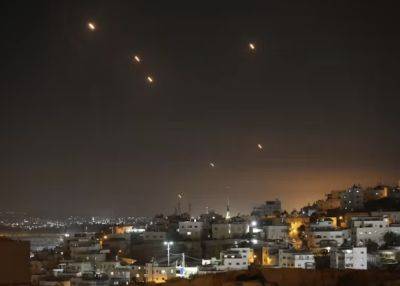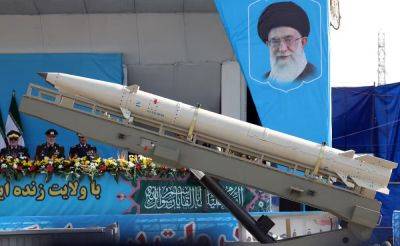Oil watchers now see a real threat of supply disruptions after latest Iran-Israel escalation
Oil watchers are now seeing a genuine threat to crude supplies after Iran launched a ballistic missile attack on Israel, escalating conflict in the Middle East.
Iran on Tuesday launched the strike on Israel in retaliation for its recent killing of Hezbollah leader Hassan Nasrallah and an Iranian commander in Lebanon.
Iranian oil infrastructure may soon become a target for Israel as it considers a countermove, analysts told CNBC.
"The Middle East conflict may finally impact oil supply," said Saul Kavonic, senior energy analyst at MST Marquee. "The scope for a material disruption to oil supply is now imminent."
These latest developments could be a gamechanger, after a prolonged period of "geopolitical risk fatigue" during which traders brushed off threats of oil supply disruptions stemming from the situation in the Middle East as well as Ukraine, he said.
Up to 4% of global oil supply is at risk as the conflict now directly envelopes Iran, and an attack or tighter sanctions could send prices to $100 per barrel again, Kavonic added.
Iran's latest missile attack followed Israel's deployment of ground troops into southern Lebanon, intensifying its offensive against Hezbollah, the Iran-backed militant group. Most of the 200 missiles launched were intercepted by Israeli and U.S. defenses, and there were no reported fatalities in Israel as a result of the attack.
The attack came on the heels of Israel's deployment of ground forces into south Lebanon, escalating its offensive on Hezbollah, the Iran-backed militant group.
Oil prices gained over 5% in the previous session following the missile strike, before tapering to a 2% climb. Global benchmark Brent is now trading 1.44% higher at $74.62 a barrel, while U.S. West Texas







